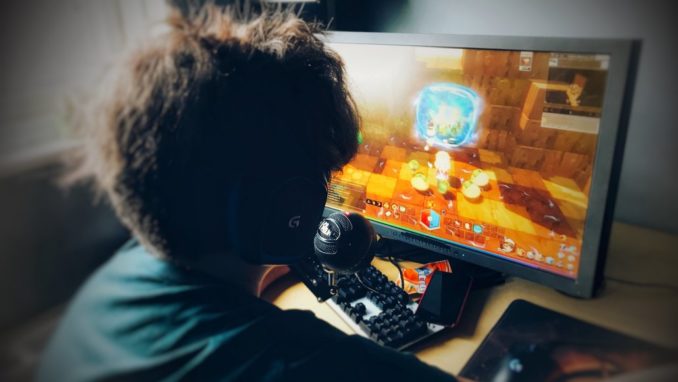
ulricaloeb – Licence CC BY 2.0
Diversity in gaming: Industry promises to improve
Identity politics has stuck its grubby paws into every cookie jar so it was no surprise when I read an article the other day decrying the lack of ‘diversity’ in the gaming industry. According to Ukie (The Association for UK Interactive Entertainment), diversity is necessary for the industry to grow. It has realised that there aren’t enough ethnic minorities in senior management roles and not enough women and LGBTQ people in gaming in general so it plans to improve this by getting gaming companies to sign up to a pledge, #raisethegame, whereby gaming companies will recruit ‘fairly’. By fairly, it means advertising specifically to minority candidates in its bid to promote inclusivity. I’m pretty sure other companies used the same line when they advertised on Creative Access, a site which helps BAME people get onto the employment/opportunities ladder. Sure. Meritocracy at its finest.
I sincerely doubt that I am the only gamer who read that article and wondered how the industry could be improved through the promotion of diversity. How will having more LGBTQ people and women improve games? How will more senior ethnic minority bosses improve the industry? Will games suddenly become better because a company has more women, homosexuals and trans people working within it? Is this the last industry to have its staff guilt checked on lack of diversity or is it, as I fear, a propagation and campaign which will allow the left to infiltrate yet another industry where they can sell their messages to the youth? Yes, there are people like myself, in my forties, who still play video games but the majority of gamers are young and are missing out on the fruity propaganda put out on TV, film, news and various online platforms. For people who don’t play computer/console games, there’s a myriad of places where the left already get to control the narrative. Gaming, until recently, wasn’t one of those places but there is a mass pocket of youth waiting to be plucked so why not gaming?
It is interesting that story telling was the big talking point in this article. Ukie’s boss, Dr Jo Twist, said, “A diverse industry that draws on myriad cultures, lifestyles and experiences will lead to more creative and inclusive games that capture the imagination of players and drive our sector forward.” What she’s talking about is having a work force which will create games in a way which reflects their lifestyles not having great games which will rope in the consumers. The majority of gamers couldn’t care less who makes the games, only that the games they get to enjoy are great. That they have brilliant environments, characters, story; that they are challenging. Moving forward, what we will see is the increasing introduction of minority characters into games where they become the main focus rather than the games themselves. Cut scenes (film scenes interspersed at various moments in the game) have grown astronomically in the last decade and if there’s a message to sell in future games, I can see more and more cut scenes being introduced. For the majority part, you can skip these cut scenes but some games don’t allow the option. That means gamers will have to sit through whatever agenda is being advertised. Lovely.
Like any other medium, whether it be TV or films, we want to be entertained. What we don’t want is an agenda to be pushed into our enjoyment of that medium. This is what this diversity campaign will do to the gaming industry. Take one of the last bits of home enjoyment we have left and make it Woke. The story telling will become inconsequential because the main drive will be the agenda at the heart of it.
The problem with identity politics that these people can’t understand is it doesn’t help to integrate; it segregates. It doesn’t inspire confidence or aspiration; it lowers it. It doesn’t raise standards; it cheapens them. It tells people in certain groupings that to get to where they need or want to be, the ladder must be removed for someone else. What would that do to anyone? As for the consumer, it makes little difference to them who is making their product. If it’s good, it doesn’t matter where the production starts. However, the finished article, in these cases, will be laced with an agenda. The nature of competitive gaming will be removed entirely in favour of that which the game makers are attempting to put across. The challenge will be as linear as many of the games and the overriding objective will be lost in favour of a changing narrative.
No one wins in this situation apart from the left. They will have succeeded in taking over yet another bastion of industry. To them, who cares if gaming suffers as long as their objective is carried through?
© 39 Pontiac Dream 2020
The Goodnight Vienna Audio file
Audio Player



